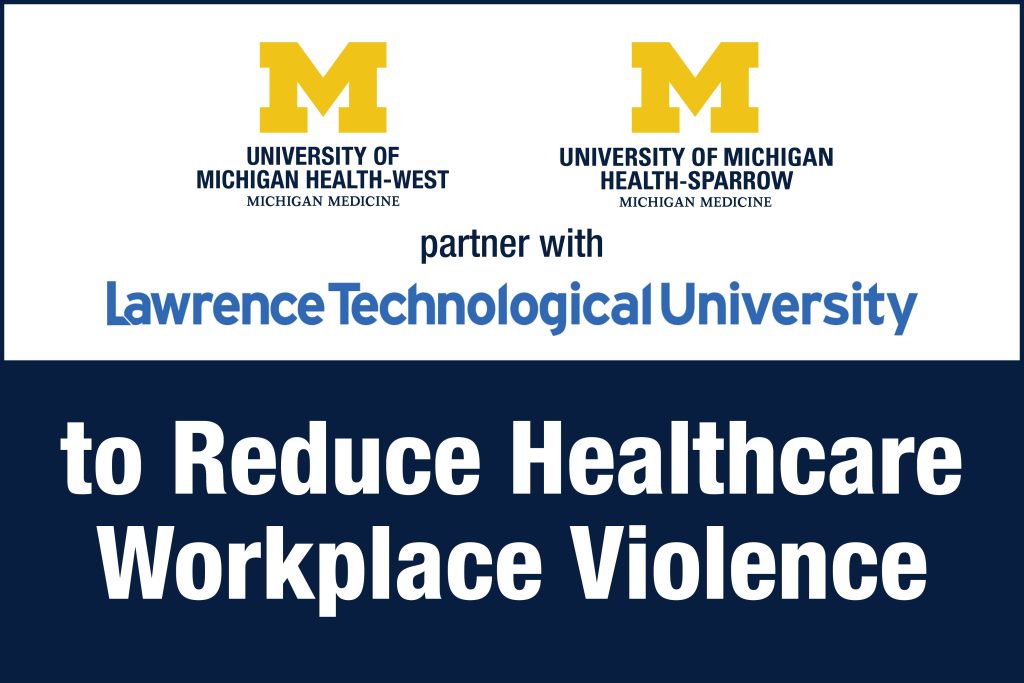Lawrence Technological University’s Healthcare Violence Reduction Center (HVRC) is partnering with University of Michigan Health-Sparrow and University of Michigan Health-West to support the center’s growth in creating measures to reduce and mitigate workplace violence incidents.
The groundbreaking initiative aims to promote research and develop and implement solutions based on real-world experiences that can be replicable across Michigan hospitals. This diverse group of experts will provide insights into the daily challenges faced by health care workers.
“This partnership will create opportunities for the HVRC and the partners to collaboratively pilot innovative solutions, share data and insights throughout the research process, and gain real-time feedback from those directly impacted by health care workplace violence. This enables continuous improvement of strategies and ensures that solutions are practical, effective, and grounded in the real-world experiences of health care professionals,” Stacey Frankovich, director of the center, said.
U-M Health will participate in board meetings to steer the research and will serve as primary sites for testing innovative solutions and interventions aimed at enhancing employee safety and reducing workplace violence.
“We’re excited for the opportunity to create lasting and measurable changes. LTU’s expertise in areas that could include technology or data analysis will be a great benefit to the evaluation of workplace violence,” said Kira Carter-Robertson, chief operating officer at University of Michigan Health-Sparrow Lansing.
“Workplace violence is a major challenge in health care and by collaborating with experts across various fields, we have the opportunity to implement evidence-based interventions,” said Shawn Bolen, clinical coordinator at UM Health-West. “This partnership allows us to share real-world insights and work towards creating safer environments for our staff, which is essential to the wellbeing of patients.”
The HVRC will welcome the two partners at its first board meeting on Oct. 28.
“Our collective goal is to reduce health care-related workplace violence by combining expertise and resources. Through shadowing, information sharing, and first-hand insights into the challenges faced by workers, the parties aim to develop impactful, evidence-based solutions that directly address the most pressing issues in healthcare settings,” Frankovich added.
